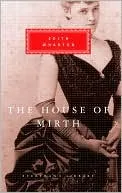The Healing of America: A Global Quest for Better, Cheaper, and Fairer Health Care By T.R. Reid; Penguin; 288 pages
The U.S. health-care system is in a remedial class by itself. In no other industrialized country do 20,000 people die each year because they can't afford to see a doctor; nowhere else do 700,000 a year go bankrupt because of their medical bills. When it comes to health-care policy, an economist tells T.R. Reid, the U.S. is the "bogeyman of the world." The question Reid poses, however, isn't, What are we doing wrong? It's, What are other countries doing right--and how can the U.S. learn from them? A Washington Post correspondent with a nagging shoulder injury from his Navy days, Reid traveled the world to see how other countries' health-care systems would treat him. From Germany to Canada to Taiwan, he finds several different models for success, all with one thing in common.
When considering whether a government has a moral obligation to provide access to health care for all its citizens, Reid notes, "every developed country except the United States has reached the same conclusion."


